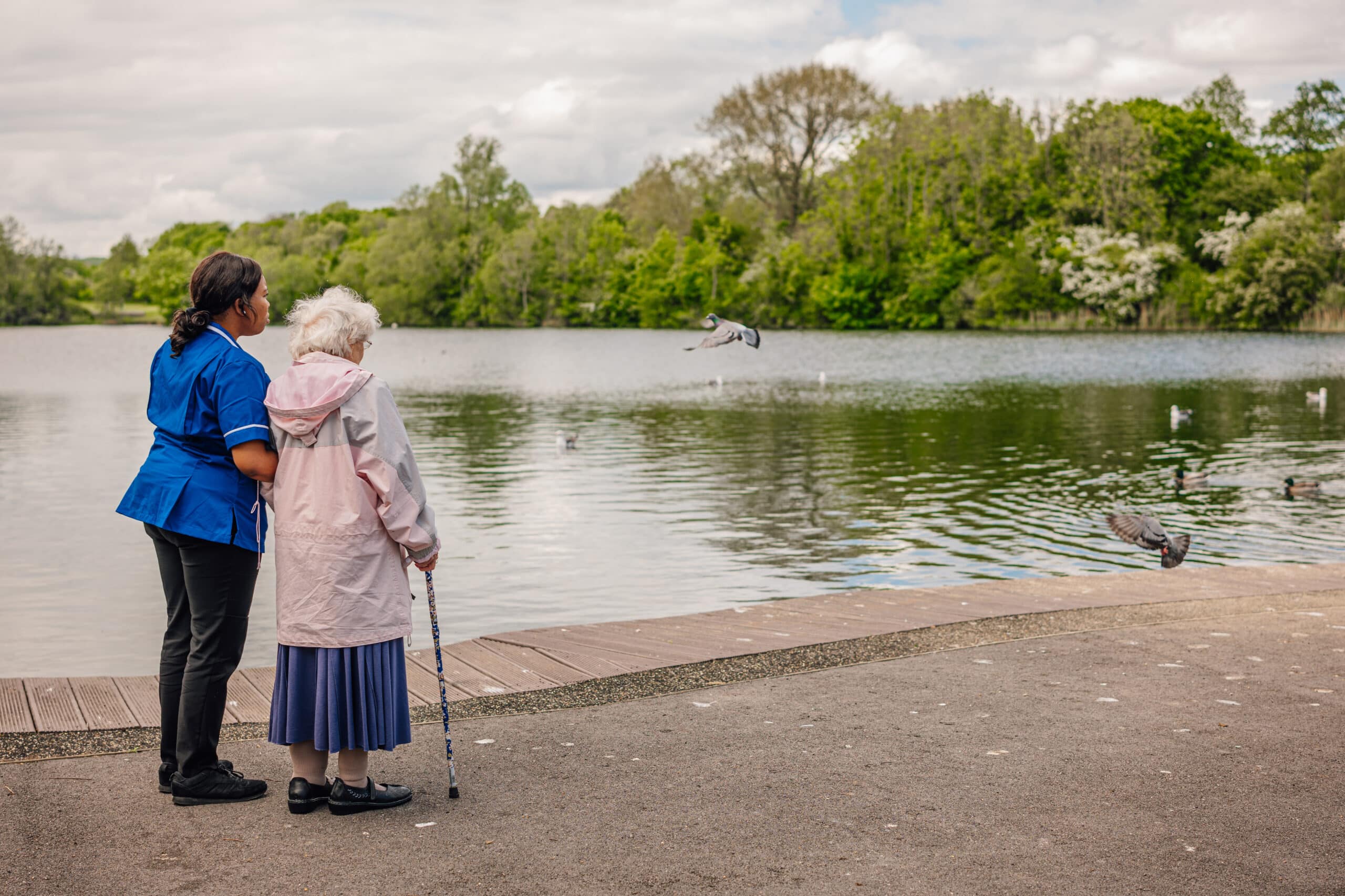10 Ways Dementia May Present Near Life’s End

Dementia is a progressive condition that affects memory, cognition, and behaviour. As it reaches its final stages, individuals may experience a range of changes. These can be physical, emotional, and psychological. For carers, family members, and healthcare professionals, recognising the 10 ways dementia may present near life’s end can help with providing compassionate, dignified care during this deeply sensitive time.
This article explores ten ways dementia may present near life’s end. It offers insight into supporting someone through the final phase of their journey.

10 Ways Dementia May Present Near Life’s End:
1. Increased Fatigue and Sleeping
One of the earliest signs that dementia may be nearing its final stage is an increase in fatigue. Individuals may sleep for longer periods, both during the day and night.. This change is often due to the body conserving energy as it begins to shut down. Carers can support comfort by maintaining a peaceful environment. They can also adjust routines to accommodate more rest.
2. Reduced Appetite and Fluid Intake
As dementia progresses, the body’s need for food and drink often diminishes. Individuals may lose interest in eating, or become unable to communicate hunger or thirst. This can be distressing for carers, but reduced intake is a natural part of the dying process. Offering small sips of water, soft foods, or moistening the mouth can help maintain comfort.
3. Changes in Breathing Patterns
Irregular breathing, such as shallow breaths, pauses, or a rattling sound can occur in the final days or hours. These changes are typically not painful but can be unsettling to witness. Carers can provide reassurance by staying close, speaking softly, and ensuring the person is comfortable. Palliative care teams can also offer support with symptom management.
4. Withdrawal and Reduced Communication
In the final stages of dementia, individuals may become less responsive. They may stop recognising loved ones or lose the ability to speak. While this can be heartbreaking, it’s important to remember that presence still matters. Gentle touch, and being nearby can offer comfort, even when words are no longer exchanged.
5. Physical Weakness and Immobility
Mobility often declines significantly near life’s end. Individuals may become unable to sit up, move independently, or hold objects. This can increase the risk of pressure sores and discomfort. Carers can support wellbeing by repositioning the person regularly, using cushions or specialist equipment. They can also work with healthcare professionals to manage pain and maintain dignity.

6. Changes in Skin Colour or Temperature
Cool hands and feet, mottled skin, or a pale complexion may show that circulation is slowing. These changes are common in the final days and are not usually painful. Keeping the person warm with blankets, adjusting room temperature, and offering reassurance can help maintain comfort.
7. Restlessness or Agitation
Some individuals may experience agitation, restlessness, or repetitive movements. This can be caused by discomfort, confusion, or unmet needs. Carers can help by identifying possible sources of distress and responding calmly. Soothing music, familiar voices, and a quiet environment can also reduce anxiety.
8. Confusion or Delirium
Even in advanced dementia, sudden episodes of confusion or delirium may occur. These can involve hallucinations, disorientation, or emotional distress. While difficult to witness, these episodes are often temporary. Carers can support the person by maintaining a calm presence and reducing stimulation,. It is also important to seek medical advice if symptoms worsen.
9. Loss of Interest in Surroundings
As the body and mind begin to shut down, individuals may lose interest in their environment. They may stop engaging with television, music, or conversation, and prefer to lie quietly. This withdrawal is a natural part of the dying process. Carers can continue to offer comfort through gentle touch, and familiar sounds.
10. Moments of Unexpected Clarity
Occasionally, individuals may experience brief moments of lucidity. This is where they recognise loved ones, speak clearly, or express emotions. These moments can be deeply meaningful and offer a chance for connection. While they may be fleeting, they remind us of the person behind the condition and the importance of compassionate presence.
Supporting Someone Through the Final Stage
Caring for someone in the final stage of dementia calls for deep empathy and patience. While the signs may be difficult to witness, this is also a time to provide meaningful comfort. Small gestures, such as holding a hand or playing familiar music, can make a significant difference.
It’s important to remember that every person’s journey is unique. Some may respond to touch or sound, while others may prefer silence. Care assistants should trust their instincts and lean on professional support when needed. They should also take care of their own emotional well-being. Compassionate care at this stage isn’t only about medical support, it’s about dignity, love, and connection. Caremark is also here to help when 1o ways of dementia may present near life’s end.
When to Seek Help
If you notice any of the following, it’s important to seek medical or professional support:
- Signs of unmanaged pain or distress
- Difficulty swallowing or breathing
- Sudden changes in consciousness or alertness
- Skin breakdown or pressure sores
- Concerns about hydration or nutrition
- Emotional distress in carers or family members
- Need for palliative or hospice care guidance
Conclusion
Supporting someone through the 10 signs death is near for someone with dementia is a profound and emotional experience. While the signs of life’s end can be difficult to witness, they also offer an opportunity to provide comfort, dignity, and love. At Caremark, we help families and carers navigate this journey with compassion and clarity.
What Caremark Can Do For You
At Caremark, we provide high-quality, professional care that helps individuals live empowered lives. Our kind and trustworthy care assistants are key to the tailored care we provide. Our customers are at the heart of everything we do, so we want to support every one of their needs to manage their conditions, even when 10 ways dementia may present near life’s end.
Want to learn more about the care services we provide? Get in touch and discover how we can support you or someone you love. From dementia care to companionship, we are here to help.